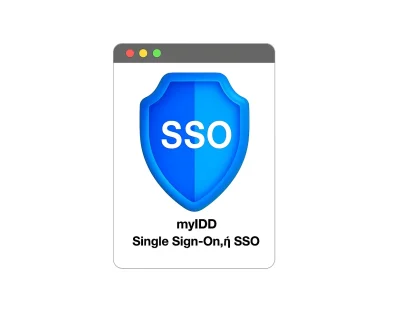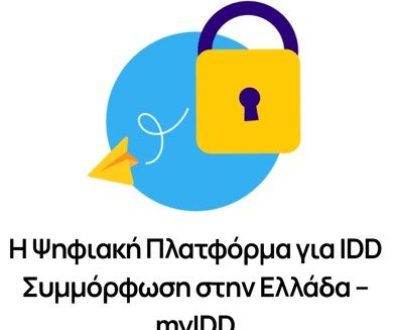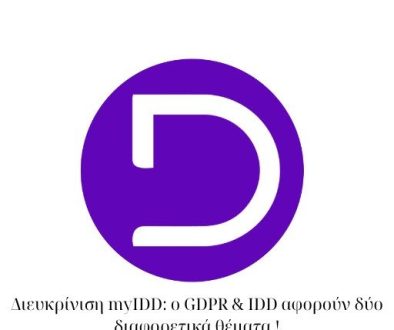What does the Mandatory Information from your Insurance Ombudsman mean?
Have you ever wondered what exactly it means when your insurance intermediary tells you that they have to inform you "compulsorily"? 🤔 Many of us have been in this position, but few of us really know the importance and implications of this process.
The truth is that the mandatory information is not just a formal procedure, but a vital part of your insurance coverage. By ignoring it, you could find yourself in an awkward position should you need your insurance. 😱 But don't worry! In this article, we'll explain in detail what this information means, why it's so important and how it can affect you and your insurance coverage.
So let's start our journey into the world of insurance mediation by exploring the role of the insurance intermediary, the concept of mandatory information, its content and the possible consequences of non-compliance. Get ready to discover how this seemingly simple process can prove to be your best ally in the world of insurance! 💪🛡️
The role of the insurance intermediary
Α. Definition and meaning
The insurance intermediary is a professional who acts as a liaison between insurance companies and clients. The importance of his role is crucial as he helps clients understand and select the right insurance products for their needs. In addition, he offers expert advice and support throughout the insurance relationship.
Β. Legal obligations
Insurance intermediaries are subject to strict legal obligations defined by Greek insurance legislation. These include the obligation to provide accurate and complete information to clients, to act transparently and to protect the interests of policyholders. They must also maintain professional insurance and comply with the industry's rules of conduct.
Γ. Relationship with the customer
The relationship between the insurance intermediary and the client is based on trust and mutual understanding. The intermediary must analyse the client's needs, propose appropriate insurance products and provide ongoing support. Transparency in communication and protection of the client's personal data are also key aspects of this relationship.
The concept of mandatory information
Mandatory information from the insurance intermediary is a fundamental aspect of the insurance procedure in Greece. This practice ensures transparency and protection of the rights of the insured person.
What the mandatory information includes
The mandatory information includes detailed information on insurance products, their terms and conditions, as well as the rights and obligations of the insured person.
Legislative framework
The legislative framework governing the mandatory information is based on the Greek insurance Legislation and the European directives. This ensures harmonisation with international standards and consumer protection.
Timeframes for information
Insurance intermediaries must provide the necessary information before the conclusion of the insurance contract and during its validity, whenever there are significant changes or renewals.
Methods of providing information
Information can be provided through printed material, electronic mail or face-to-face meetings. The method must be understandable and accessible to the insured person.
Understanding the mandatory information is vital to safeguard the interests of policyholders. In the following, we will look in detail at the content of this information.
Content of the mandatory information
The mandatory information from the insurance intermediary includes critical information that must be provided to the insured person. This information is vital for transparency and the protection of the rights of the insured person.
Α. Details of the insurance intermediary
The intermediary must provide full identification, including name, address and contact details. It must also indicate its registration number and the supervisory authority to which it is subject.
Β. Details of insurance products
A detailed description of the insurance products offered, including coverages, exclusions and policy terms is required.
Γ. Costs and charges
A complete breakdown of the premiums must be provided, including any additional charges or commissions.
D. Complaints Procedure
The intermediary is required to inform the client about the procedure for submitting and managing complaints, including the relevant contact points and timeframes.
E. Information about the insurance provider
Finally, information about the insurer, such as its financial situation and solvency, should be provided.
Providing this information ensures that the policyholder makes informed decisions and is protected against potentially misleading practices. We will then consider the consequences of failing to comply with these information obligations.
Consequences of non-compliance
Α. Legal sanctions for the mediator
Failure to comply with the mandatory information can result in serious legal penalties for the insurance intermediary. These may include fines, suspension or even withdrawal of the licence. Greek insurance legislation is strict in this regard, as the aim is to protect the rights of the insured.
Β. Impact on reliability
In addition to the legal consequences, non-compliance can seriously damage the professional reputation and credibility of the mediator. Trust is fundamental in the insurance industry, and breaching disclosure obligations can lead to loss of clients and business opportunities.
Γ. Potential impact on the insured person
Lack of proper information can also have significant consequences for the insured person. Without a full understanding of insurance products, the customer may make wrong decisions that will negatively affect their insurance coverage. This can lead to inadequate protection or unexpected gaps in their insurance.
Transparency in insurance is crucial for building trust between insurers, intermediaries and customers. Therefore, compliance with information obligations is not only a legal requirement, but also an ethical responsibility of the insurance adviser towards his clients.
Conclusion
Mandatory information from the insurance intermediary is a crucial element in the relationship between the policyholder and the insurance professional. This process ensures transparency, trust and protection of the consumer's interests. The insurance intermediary has a responsibility to provide all the necessary information, and failure to comply can have serious consequences.
As insured persons, it is important that we know our rights and demand full and accurate information from our insurance advisors. This not only helps us to make informed decisions, but also helps to create a healthier and more reliable insurance environment for all.







